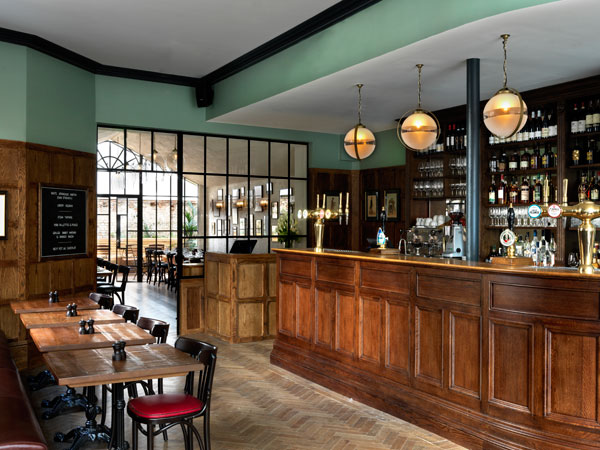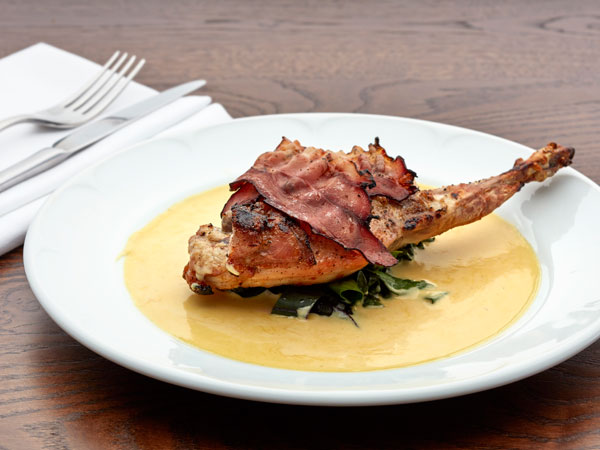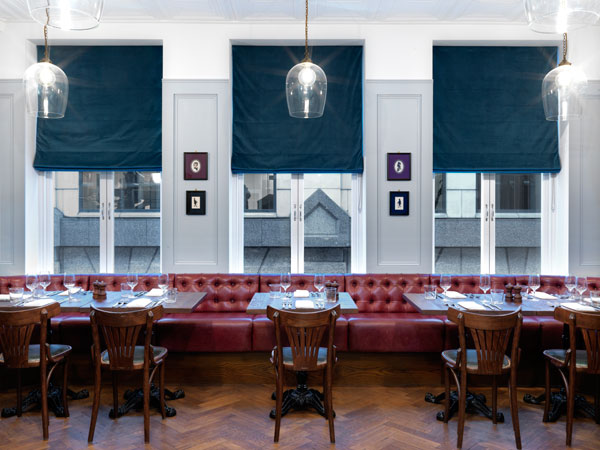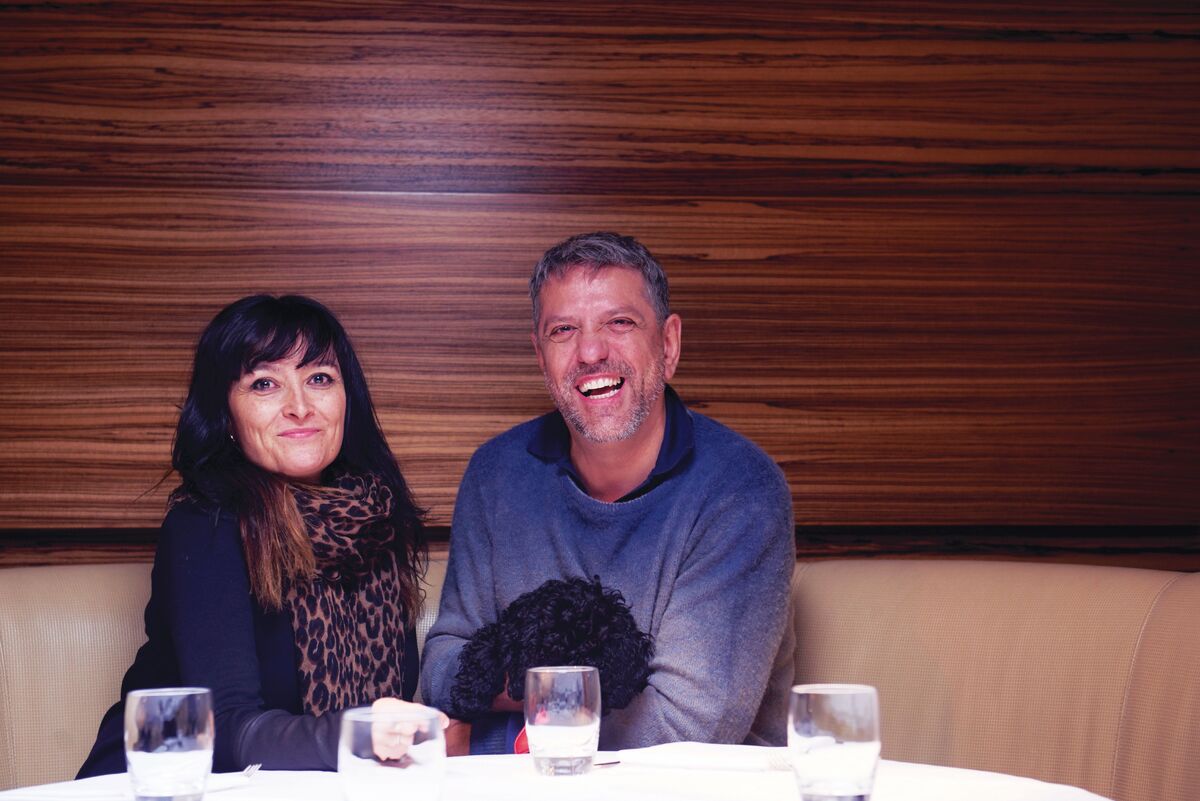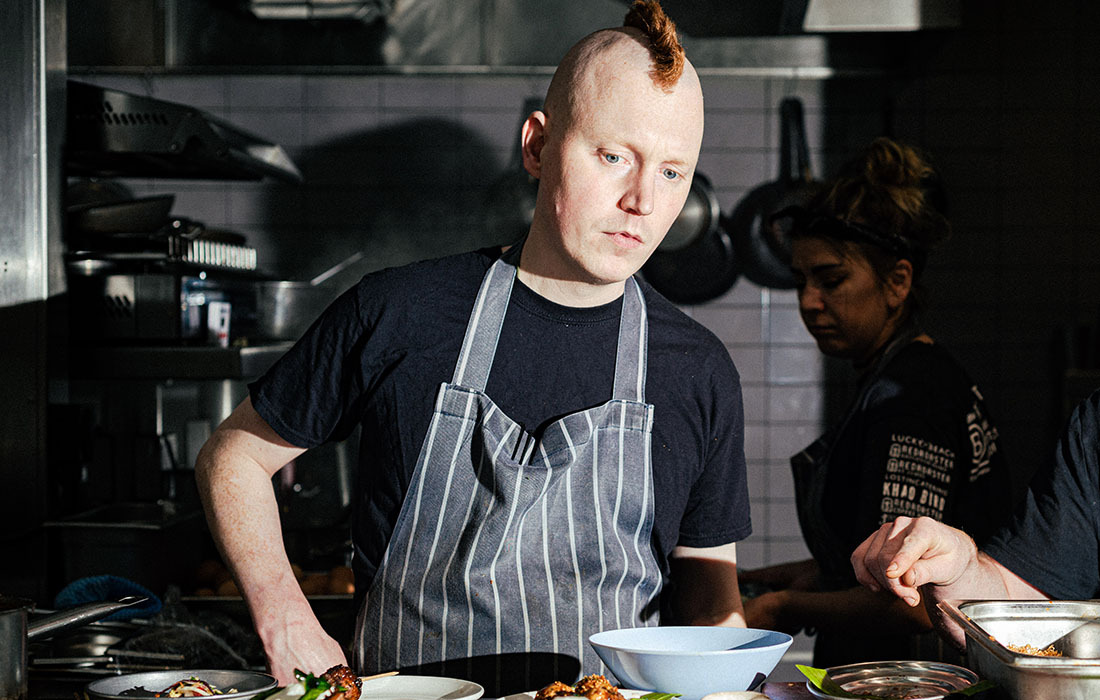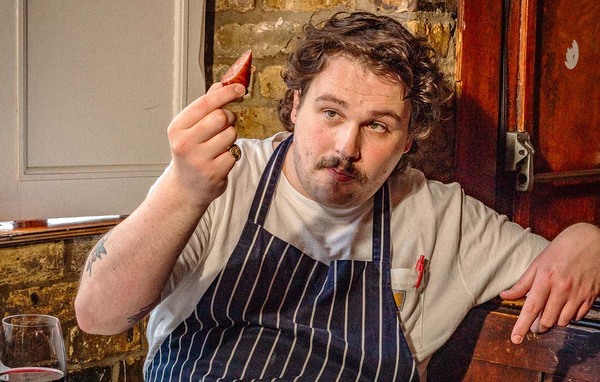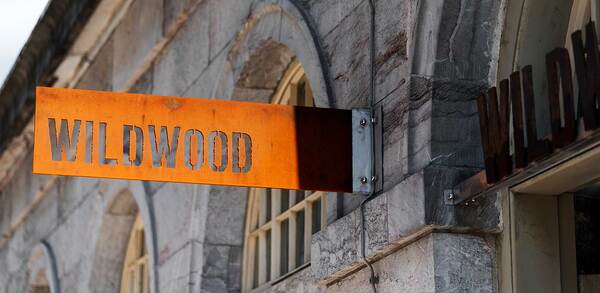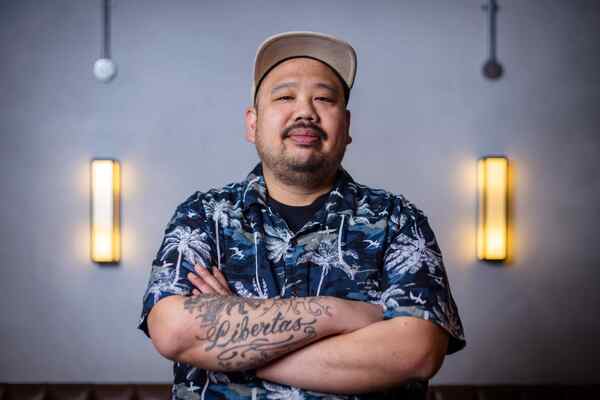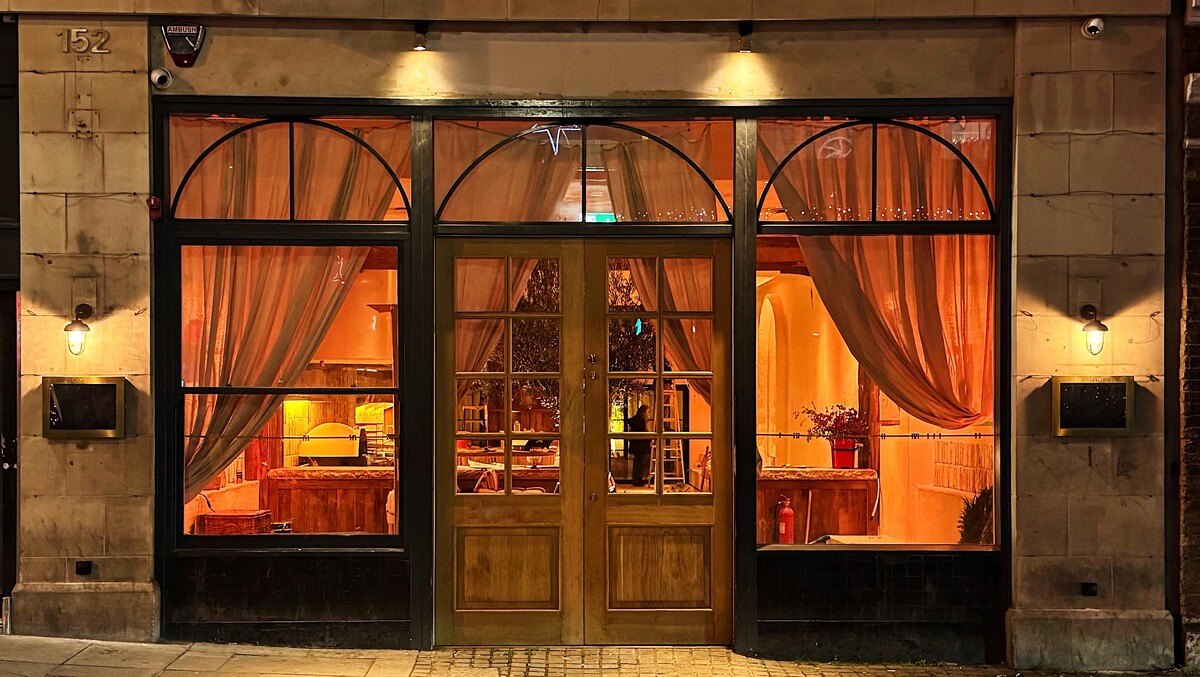Racine ahead: Henry Harris on adding French bistro panache to British pub culture
When Henry Harris closed Racine, many worried his legendary cuisine was lost from London forever. But he has since collaborated with Harcourt Inns to launch a trio of pubs with dining rooms, with a fourth on the way. He talks to James Stagg about adding French bistro panache to British pub culture
How did the relationship with Harcourt Inns and founder James McCulloch come about?
Is the current food offer as James McCulloch had envisaged?
Iâd been looking at pubs and I had a blueprint for a pub with a dining room. Iâd seen a couple that turned out to be not quite what they should be â" people were trying to get you to pay a premium for a hideous failure of a business while being tied in with personal guarantees to the landlord, or the £5,000 of dilapidations was more like £80,000 to £100,000 worth.
I wanted to do a pub with a Racine-style bistro dining room. If you look at the Coach, thatâs pretty much it. I had menus all done, so I gave them to James and he said âI want to eat all of thisâ.
Youâre used to being in full control of one site, how does it work across a group?
Iâve was bouncing between the Three Cranes and the Coach earlier this year. The Three Cranes is tiny, but the Coach is where âMr Racineâ is back. I had a good following and it was a mixture of locals and lots of old regulars â" and plenty of chefs coming in for the calvesâ brains and tête de veau.
So the food you became known for at Racine still has a strong followingâ¦
My head chef said it was carnage again. We canât keep up on the brains â" weâd sell anything from 40 to 80 portions a week.
It seems that your legend grew further after you closed Racine?
People said, âif only weâd knownâ, but everyone knows if you donât go to a restaurant, it will close.There was an issue with the rent â" but Iâm not going to pretend it wasnât a sustainable increase. The landlord just made it a very costly process.
But Knightsbridge changed. Nobody was living there and it was such a changing demographic on the pavement that the European middle classes didnât want to fight through a Middle Eastern boulevard to get to a restaurant.
So you found that alternative in the Coachâ¦
Clerkenwell is a commercial and residential neighbourhood with really good lunch and early evening trade and enough locals within walking distance. Thereâs an appetite for good, hearty cooking.
Have any dishes lasted from Racine to the Harcourt Inns sites?
At the Coach we have calvesâ brains, rabbit and crème caramel, and at the Hero of Maida weâve put the soup de poisson on the menu.
Iâve created a framework for the menus. Theyâre populated with certain house dishes which I go through with each head chef, but they get to put their stamp on it. There is a small list of things they canât do: for instance, make a soup out of broccoli, or put Stilton in a soup, and Iâve almost removed butternut squash.
Itâs a pub setting, so do you feel you have to be more competitive on price?
Really, theyâre pubs with dining rooms. Across the group weâre making 70% GP, though we could tighten it up slightly. Thereâs a £17 onglet on and a 1kg côte de boeuf from HG Walter thatâs been aged for 45 days and is worth every penny of the £82 menu cost. People like big chunks of sharing food. At the bar we also do more anglicised things, like Scotch eggs and sausage rolls.
So youâre looking to source locally, with British ingredients given a French touch?
One thing weâre buying a lot of from France is poultry. I donât want to be dismissive of the English poultry industry, as there are some good chickens, but at all price points the French have mastered it. Iâve yet to find better chickens.
Pubs traditionally have small kitchens. Have you had to refurbish the properties youâve taken on?
The Hero of Maida had a small kitchen before on the first floor. Weâve now put all the kitchen in the basement with a staging post on the first floor for the dining room and events space. We had to invest in proper kitchens to make it work, particularly at the Hero of Maida.
Weâve designed the menus around the plancha and robata grill to free up the ovens. Whether itâs a restaurant, bistro or brasserie, the kitchen has to be designed so that you have a robust heart to the operation. Happy cooks mean happy food.
Itâs obviously been a huge investment at the Hero of Maida. How have you made it work after the last tenant â" Andrew Fishwick running what was the Truscott Arms â" had to leave due to the unsustainable rent increases?
It was more than triple, from £75,000 to £250,000. But we bought the building, so
weâre our own landlord. The model is that all the pubs are owned by Harcourt Inns. We have investors that want to see a return, but itâs more sustainable. There is an appetite â" particularly from the City â" to invest in bricks and mortar.
As with the Truscott Arms, the Hero of Maida was well-known for its Sunday roast. Is that something youâve focused on continuing?
They used to do 400 on a Sunday between midday and 9pm. Weâve started with 12pm-5pm and extending from there. Weâre developing a good Sunday lunch following. Everything is done family-style, using produce like HG Walters Ayrshire sirloin, which is top-notch.
We focus all of our energy on making sure all the components are as good as they should be. People come in and might just want a beer and a roast, so we clear the menu to just concentrate on roasts to make sure theyâre out quickly.
Aiden McGee [who ran the kitchen when the pub was the Truscott Arms] told me they were doing 400 covers on a Sunday. When he did it, they didnât even use checks; the waiters would just come in and ask for it and itâd fly out.
Youâve just taken on a pub in Chiswick which was to open in January under the name the Harlot, but plans have now changed and itâll be called the Crown. Why the change of heart?
There were a couple of people who said the Harlot didnât sit well with them. It was actually the male response rather than the female response. Our first choice was to always look at something that was specific to the building.
We tried lots of witty names and abbreviations, until someone suggested the police link (the building used to be a police station) and that we could call it the Crown.
The Crown will open next year and the food offer is promoted as being Mediterranean, which is a slight departure for you.
Well, there will still be duck confit and brains on. There will be the core of what we do â" I always say that France is the heart of European cookery and the arteries spread throughout the continent. Catherine de Medici brought chefs from France which changed the way Italians cooked in the Renaissance period.
Whoâll be heading up the kitchen?
Daniele Zaffora, who used to work for me at Racine, will be heading the kitchen. Heâs from Sicily, so it would be crazy not to take advantage of that. It means that at each pub we donât have an identical menu, too. There will be some very Italian dishes. One of the bar snacks is saffron arancini stuffed with snails and garlic butter â" we bit into that and said âyouâve got the jobâ. Heâs helping at the Hero while he tries things out. He turned up on his first day on a Harley- Davidson with his sourdough starter in a bucket tied to the back. Some 48 hours later, sourdough loaves started appearing everywhere.
The Crown is local to you. Was it a business with which you were familiar?
Iâd looked at it six months before James saw it, when the previous freeholders were looking to assign a lease. It needed a lot doing to it and, coupled with the rent they were looking for, it didnât work for my business model. But James said we had an opportunity to buy it, which changes the business model completely.
Are you on the hunt for new sites and is there an ideal size for the business?
There will be something happening later next year and weâre always looking. Weâre always looking at how we do everything. When we do another after Chiswick we need to consolidate and look at how we do things to make sure itâs as efficient and sustainable as possible. If you offer good food, good services and value for money at any price point, customers will support you.
Henry Harris
Employed by Simon Hopkinson after graduating from Leiths, Henry Harris was made sous chef at Bibendum in 1987 before overseeing Harvey Nicholsâ Fifth Floor restaurant. He then took on the role of chefdirector of Soho House Group before opening his first solo venture, Racine, in Knightsbridge in 2012. He sold the business in 2015 and took the role of chef-director of Harcourt Inns in 2018.
Harcourt Inns
James McCulloch Founder
Henry Harris Chef-director
Sites
The Three Cranes
28 Garlick Hill, London EC4V 2BA
Opened December 2017
Covers 27
Head chef Douglas Brunen
General manager Michal Waleryszak
The Coach
26-28 Ray St, Clerkenwell, London EC1R 3DJ
Opened January 2018
Covers 30 on the ground floor; 40 on the first floor; 10 in the private hire room
Head chef Aurelien Durand
General manager Katie Van Der Merwe
The Hero of Maida
55 Shirland Rd, London W9 2JD
Opened May 2018
Covers 50 in the bar; 60 in the dining room, 30 in the back garden; 12 in the front garden
Head chef Daniele Zaffora
General manager Ruth Leigh
The Crown
210 Chiswick High Road, London W4 1PD
Due to open January 2019
Covers 120
When it opens, Ruth Leigh and Daniele Zaffora will move from the Hero of Maida



